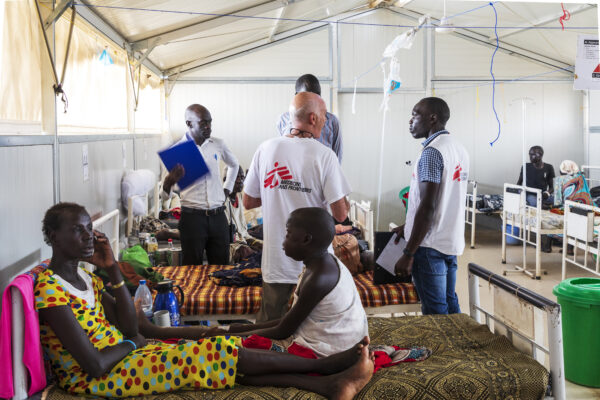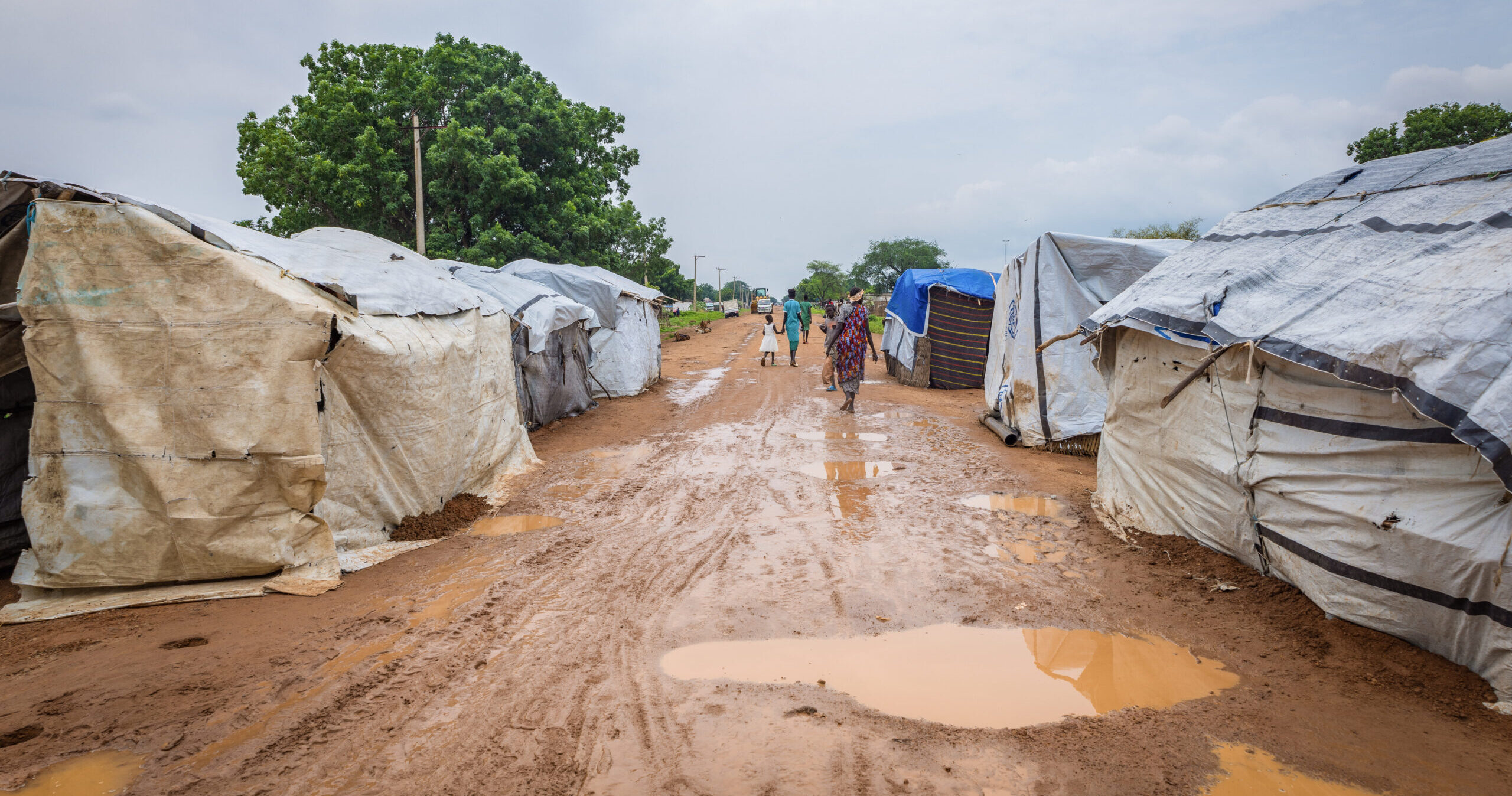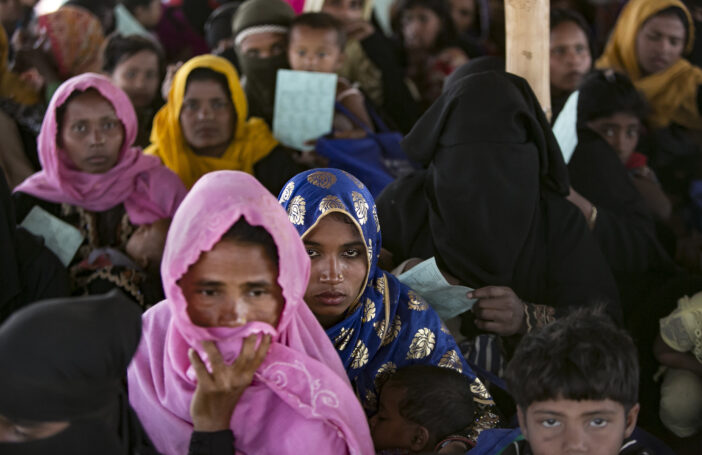Although I’m physically far away, the effects of the war in Sudan, my country, are ever-present, pulling me back with every news update. I can’t help but compare the devastation I hear about with the global news headlines that barely seem to take notice. Sudan and its suffering people have slipped down the world’s list of priorities — forgotten by the media, neglected by political will and overlooked by the humanitarian donor institutions that should be putting this catastrophe front and centre. I ask myself: what can I do as an individual? My resolve is clear — I will continue to support those crushed by this brutal war.
Here in Twic County in South Sudan, many of our patients are South Sudanese returnees who have been displaced twice in about a decade. And now, thousands of Sudanese refugees have crossed into South Sudan since the war broke out in April 2023, scattered in host communities or crowded into refugee camps.

This war continues to torment us, tearing families apart. Those fleeing Sudan share the same stories of loss, uncertainty and fading hope for peace. I know this pain too well.
Internal borders and front lines controlled by warring parties have sliced through a nation where lives are being lost, homes destroyed and livelihoods wiped out.
As for the people — us — we are left alone.
My family escaped Sudan’s capital Khartoum, joining millions who have been displaced, not once but several times in just 18 months. They left everything behind with no clear path to survival and little attention from the world. We are still suffering from the disappearance of a relative, a civilian taken from his home by one of the warring parties over 10 months ago. We have no news — no information about his health or whether he will ever be released.
Even for those who escape the violence or reunite after separation, new challenges arise — floods, disease outbreaks — under a collapsed healthcare system. Most hospitals lie destroyed. Those that remain functional are marooned without medicine, staff or resources. This is deliberate deprivation, a cruel tactic of war.
Surviving on the bare minimum, people have been left waiting — for a miracle, more displacement, or even worse: death.
Despite all this, I’m here to share our resilience. As humanitarians — medics, logisticians and nurses — we do everything we can to support those in need. Every small act matters, and every effort counts.

This is exactly what I’ve been doing for the past months in Twic as the MSF medical team leader at Mayen Abun County Hospital. The area was already overwhelmed by humanitarian needs, having witnessed internal displacement of thousands of South Sudanese uprooted due to inter-communal violence in Agok in 2022. It’s a place where the health system has collapsed, burdened by malaria, hepatitis E and malnutrition.
The work here provides a window into another dimension of my country’s war. I see firsthand the dire conditions faced by those forced to flee Sudan. What astonishes me even more is how overlooked this crisis remains — there is so little mainstream knowledge about the displacement of Sudanese people to South Sudan, Chad and other countries, despite the overwhelming needs of families seeking refuge.
We live in a time of escalating crises — both man-made and natural. The casualties of today’s wars, in different places and contexts, are almost too tragic to comprehend.

Amid all this, I plead with the world: do not let Sudan slip from your attention. At times, it feels as though no one cares, as if Sudan has been deliberately deprioritised by the global decision makers, pushed aside for other crises. How much longer can we tolerate this inaction?
This blog was written as part of a partnership between the Development Policy Centre with Médecins Sans Frontières / Doctors Without Borders (MSF) Australia. MSF provides medical assistance to people affected by conflict, epidemics, disasters, or exclusion from healthcare. Their actions are guided by medical ethics and the principles of impartiality, independence and neutrality. MSF Australia does not receive public institutional funding.
Read the MSF Australia blog series.





You are absolutely correct that the global community is obsessing about other conflicts while ignoring the conflict in Sudan which these days directly affects many Australians.